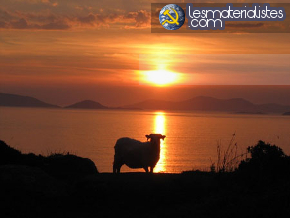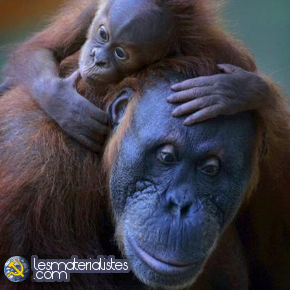With light and happiness
Submitted by Anonyme (non vérifié)There is a quote by Gonzalo, which is quite famous in the movement to support the People's War in Peru, and which stresses the dimension of the struggle as understood by him:
We humans are mere fragments of time and heartbeats, but our deeds will remain for centuries stamped on generation after generation. We will people the Earth with light and happiness.
 These words carry a very high ideological level, as always. Let's try to understand them in a proper way. For that purpose let's examine all the points that are to be understood :
These words carry a very high ideological level, as always. Let's try to understand them in a proper way. For that purpose let's examine all the points that are to be understood :
1. each human is only a fragment of time and heartbeats;
2. the deeds of the humans do not disappear, but are carried throughout and by the generations that follow;
3.the Earth will be inhabited by light and happiness.
The last point is, of course, the most complicated to understand. On the contrary, the first point is the easiest.
Gonzalo stresses here the materialistic definition of time. The question of time raised a lot of debates among materialists, idealists, and each religion gives a great importance to this question.

According to materialism, time is a way of measuring movement in space. There is no such thing as time in itself. That is why Gonzalo considers time through the aspect of heartbeats: for each human, heartbeats are like a chronometer. And this chronometer is so to speak personal, as time does not exist in itself and this chronometer is only a fragment of time, which is in fact the general movement of the universe.
There is a double aspect : on one side, each human follows its own rhythm (heartbeats), on the other side each human individual's time is only a component of the whole system.
We find here the two classical aspects of psychology, as explained by the great revolutionary of Afghanistan, Akram Yari.
Therefore, as Akram Yari already explained this aspect, let's examine the second point. Here, it is easy to understand where from Gonzalo derives this issue of the deeds of humans being stamped on generation after generation.

Gonzalo, at university, worked on the question of space in Kant's conception. And indeed, Kant explains that in the world everything that exists has a usefulness ( a materialistic classical point of view, formulated by Aristotle). Therefore, the work of humans has a meaning for nature.
The transmission from generation to generation, the deeds stamped on generation after generation, with every generation working for the next one so to speak, is according to Kant the proof of the role of humans on Earth.
Now, we can understand the goal of human work, explained by Gonzalo as follows: We will people the Earth with light and happiness.
Here, of course, the question is : what did Gonzalo mean by light and happiness? For happiness, we can understand : the living matter wants to live well, it is something well explained by Epicurus and Spinoza, for example.
 Nevertheless, there is also this question of light. Here it is in fact easy to understand what Gonzalo says. Gonzalo often borrowed concepts from the christian religion, to use them in a materialistic sense in order to mobilize, to call for struggle.
Nevertheless, there is also this question of light. Here it is in fact easy to understand what Gonzalo says. Gonzalo often borrowed concepts from the christian religion, to use them in a materialistic sense in order to mobilize, to call for struggle.
Thus, Gonzalo had already used the famous biblical words about the people as the light of the world. When Gonzalo says that we will people the Earth with light, he means that those who shall people the Earth are in fact the people itself, becoming a light.
Of course, we can see here that Gonzalo only deals with the question of the people in relation to the universe, as eternal matter in movement; he didn't raise the question of the biosphere. It is easy to see why: even if it was raised by Vernadsky in the Soviet Union during the 1920's-1930's, it was only recently that this aspect could be formulated as such.
But in spite of this, which should not be seen a limit but a question of progress of the matter in movement a fragment of time -, Gonzalo has expressed masterfully the dialectical relationship between the individual and society, not only within the time of the individual, but also for the next generations.
